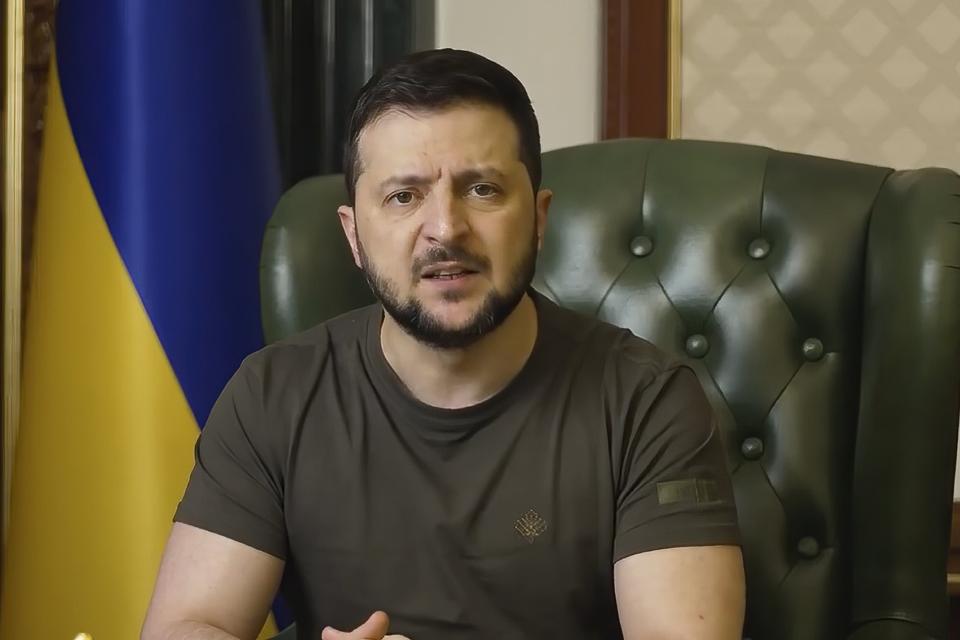Stephens: Why we admire Zelenskyy
Why do we admire Volodymyr Zelenskyy? The question almost answers itself.
We admire him because, in the face of unequal odds, Ukraine’s president stands his ground. Because he proves the truth of the adage that one man with courage makes a majority. Because he shows that honor and love of country are virtues we forsake at our peril. Because he grasps the power of personal example and physical presence. Because he knows how words can inspire deeds — give shape and purpose to them — so that the deeds may, in turn, vindicate the meaning of words.
We admire Zelenskyy because he reminds us of how rare these traits have become among our own politicians. Zelenskyy was an actor who used his celebrity to become a statesman. Western politics is overrun by people who playact as statesmen so that they may ultimately become celebrities. Zelenskyy has made a point of telling Ukrainians the hard truth that the war is likely to get worse — and of telling off supposed well-wishers that their words are hollow and their support wanting. Our leaders mainly specialize in telling people what they want to hear.

We admire Zelenskyy because of who and what he faces. Vladimir Putin represents neither a nation nor a cause, only a totalitarian ethos. The Russian dictator stands for the idea that truth exists to serve power, not the other way around, and that politics is in the business of manufacturing propaganda for those who will swallow it and imposing terror on those who will not. Ultimately, the aim of this idea isn’t the mere acquisition of power or territory. It’s the eradication of conscience.
We admire Zelenskyy because he has restored the idea of the free world to its proper place. The free world isn’t a cultural expression, as in “the West”; or a security concept, as in NATO; or an economic description, as in “the developed world.” Membership in the free world belongs to any country that subscribes to the notion that the power of the state exists first and foremost to protect the rights of the individual. And the responsibility of the free world is to aid and champion any of its members menaced by invasion and tyranny.
We admire Zelenskyy because he embodies two great Jewish archetypes: David in the face of Goliath and Moses in the face of Pharaoh. He is the canny underdog who, with skill and wits, makes up for what he lacks in fearsomeness and brawn. And he is the prophet who revolts against the diminishment and entrapment of his people — and determines to lead them through trials toward a political culture based on self-determination, freedom and ethics.

 Yahoo Autos
Yahoo Autos 